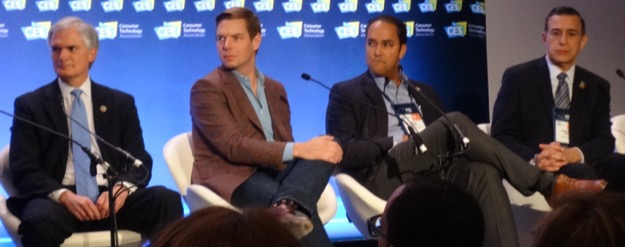
“Over the last several years, what we’ve seen has been lot of reaction in congress, reacting to things. What I think we’re going to see now more is planning”, said Bob Latta, a republican representative from Ohio, who holds a key telecoms committee portfolio in Washington, D.C. He was on a four-congressman panel at CES, talking about the reconfigured Federal Communications Commission. It will begin the Trump administration with a republican majority and, Latta expects, commissioner Ajit Pai installed as chairman.
Freeing up more spectrum for wireless Internet access, circling back on set top box rules and revisiting rules made during the Obama administration – such as the network neutrality decision that re-classified broadband as a common carrier service – are high on the republican telecoms agenda for the coming year.
Latta said that he favors a light-touch regulatory approach and the FCC will be taking a different direction. Net neutrality, as currently defined, is the wrong direction, he said.
California representative Darrell Issa, a San Diego republican, said that outgoing chairman Tom Wheeler overreached. New set top box rules floated by Wheeler and then quickly withdrawn after the election tried to do much. There should be new rules, Issa said, but the objective should be limited to getting rid of the 1990s vintage cable cards – limited and clunky hardware interfaces that never found a market – and simply giving consumers a way of connecting directly to the digital streams delivered by cable companies, without the complicated and detailed review process proposed by Wheeler.
Issa said that congress needs to take a hard look at how spectrum is allocated for wireless broadband service, particularly the balance between licensed and unlicensed bands…
“Today, more data goes through [WiFi] than, in fact, goes through cellular. How much spectrum we have in our WiFi? A fraction of what just one carrier owns in the way of cellular. So the reality is that one of the greatest failures in the world is, in fact, selling spectrum, and one of the greatest successes in the world is sharing spectrum”.
Latta also put a high priority on finding more spectrum. He said that even though 95% of the U.S. might have access to wireless broadband, the remaining 5% need to be served too.
